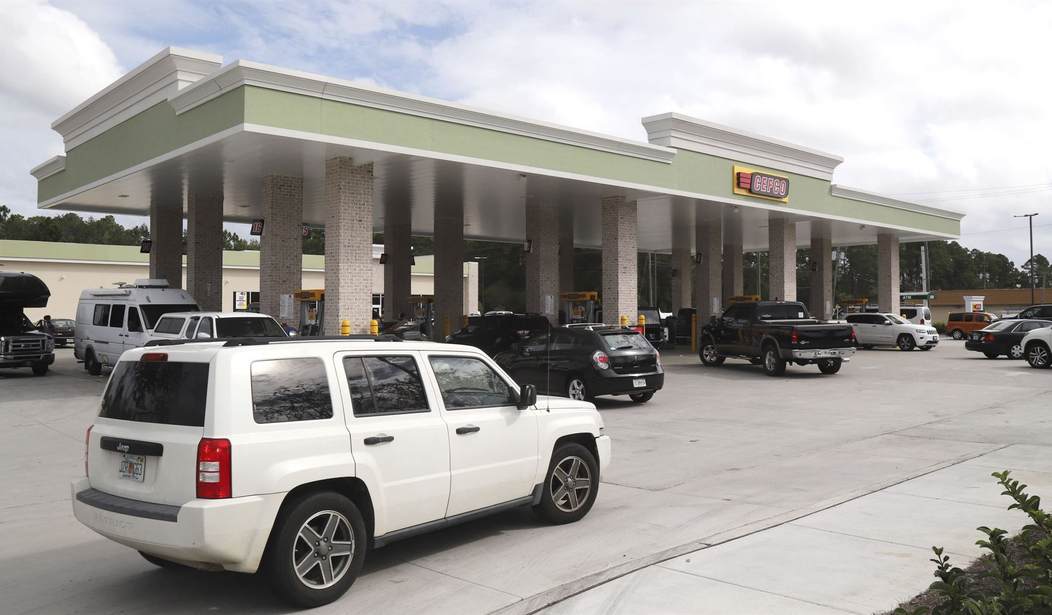Buying a new car is almost always a daunting task, with salespeople trying to sell that extra warranty or undercarriage rustproofing. And, to add insult to the process of buying a new car, federal bureaucrats regularly tack on rules that jack up prices for consumers. In fact, average prices for new cars are nearing $40,000.
But, that staggering high amount may soon fall due to the Trump administration’s ambitious drive to roll back onerous rules. The Environmental Protection Agency (EPA) is in the process of freezing, or at least slowing, Corporate Average Fuel Economy (CAFE) standards for cars, unshackling vehicles to a ticking time bomb of costly rising standards imposed by President Barack Obama. Many members of Congress aren’t happy with these revisions, and the House Energy and Commerce Committee and associated “experts” will be sure to sound the alarm at a June 20 hearing. Congressional convulsions aside, keeping standards from dramatically escalating prices would save Americans billions of dollars at the auto dealership.
Car salespeople have earned their...subpar...reputation by tacking on multiple fees after a price is supposedly agreed upon. Auto shoppers can escape dealing with slick salespeople, but they have no respite from bureaucrats continually raising fuel economy standards each year. In 2012, the Obama administration introduced strict rules requiring a fuel-economy average of 54.5 miles per gallon by 2025 fleetwide. A 2016 Heritage Foundation study found that those rules are as costly as they sound; buyers on average would have to fork over more than $7,000 extra for their vehicle in 2025 than under pre-Obama rules.
Recommended
Now, the Trump administration is poised to embrace a middle-of-the-road (pun intended) solution by freezing the 2020 mandated standard of 37 miles per gallon and maintaining the freeze through 2026. Alternatively, Trump’s EPA may simply slow the steady upward climb of CAFE standard. Either way, cars and light-duty trucks will no longer have to attain average efficiency of 54.5 miles per gallon by 2025.
Already, the environmental left is crying foul, accusing policymakers of not caring about Mother Earth and the impending apocalypse of global warming. But, by the Obama administration’s own measure of the “social cost of carbon,” CAFE standards are simply too costly to justify environmental benefits. The original rulemakers wanted consumers to pay $1,000 for every avoided ton of carbon dioxide billowed into the atmosphere. This is a perplexingly high amount to ask consumers to pay, considering that Obama’s EPA pegged the cost of a ton of carbon at just $20.
If green zealots had their way, though, consumers would pay increasingly high prices for cars that may not even be more efficient. Fuel economy standards would seem to favor smaller, less powerful vehicles which require less gasoline. But U.S. requirements take vehicle “footprint” into account (i.e. square footage), allowing laxer fuel economy rules for larger vehicles. This, combined with the large American consumer preference for SUVs and trucks, has contributed to the collapse of the U.S. sedan market. As University of Chicago scholar Koichiro Ito points out, the tightening of fuel economy rules has simply led to vehicles getting larger, shortchanging efficiency at a substantial cost to consumers.
These added expenses don’t stop at the sticker price. Because larger cars are safer for their occupants but more dangerous to pedestrians and occupants of other vehicles, encouraging the adoption of larger cars leads to higher costs even for Americans that choose to walk or drive smaller cars. Ito concludes that these “externalities” cost billions of dollars each year and make the roads less safe for nearly everyone around. In the name of saving the environment, the previous administration spurred consumers to purchase gas-guzzlers with little thought to the consequences. The federal government thrust itself head-first into a complicated auto market, and consumers wound up footing the bill.
If the federal government is truly serious about helping the environment, they’ll end their own destructive environmental tendencies. Publicly owned power plants, hospitals, and water utilities, for instance, are up to 20 percent more likely to have violated federal air and water rules than their private counterparts. Privatizing would lead to cleaner air and less costly operations, saving consumers money instead of sticking them with a $7,000 bill.
Instead of driving car prices higher, policymakers should put the brakes on disastrous regulations bilking American consumers.
























Join the conversation as a VIP Member